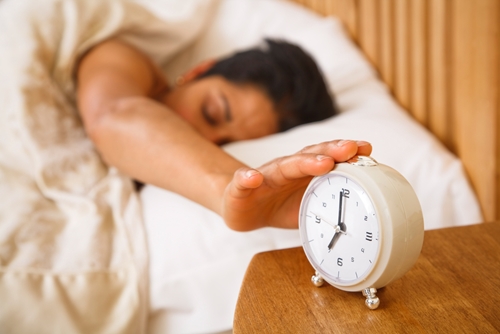
All About Sleep: What You Can Do To Improve Your Sleep
We’re taught that we need to get a certain amount of sleep each night to keep us healthy, but not always how to improve your sleep. Often as we get more involved with our daily routines or work life the rules around sleep become blurred. We take a look at why sleep is still important for our wellbeing as well as some things we can do to improve the quality of our shut eye.
What happens when we hit the sack each night?
Over the course of our lives from child to adult, our sleep needs change gradually. For school-aged children, the recommended amount of sleep is 9-11 hours, while for adults, you may be familiar with the approximately 8-hour figure.
When we sleep, we not only give our body a chance to recharge and refresh for the next day’s activities, but it also gives our brains a chance to consolidate what we have taken in throughout the day. Psychologists have also suggested that sleep plays a part in the memory process, along with allowing regeneration and repair of our body’s cells.
When we aren’t getting the recommended amount of sleep, the American Psychological Association (APA) suggests we may suffer issues like sleepiness throughout the day, learning interference and poor decision-making, all while putting us at risk of causing accidents. This phenomenon is also referred to as sleep debt, which can only be paid off, so to speak, by getting more sleep.
According to Dr Robert Simpson, a specialist in sleep science, for adults, the quality of sleep is most likely to be a reflection of your general health, rather than being a by-product of ageing. Over the course of the past few years, adults are getting less sleep on average.
“If you look at the 1960s and 1970s, people reported average sleep times of 8-8.5 hours a night,” Dr Simpson told WebMD. “Today, it’s much more likely to be 7-7.5 hours or less.”
Establishing a routine bedtime and waking time is a way to stabilise the circadian rhythms which moderate our sleep patterns, however there are a few other habits you can observe around bedtime to improve your sleep for a more satisfactory shut eye.
What are you eat before bedtime can affect your sleep
As it turns out, a light snack before bed could help send you off to sleep, but keep an eye out for the right kinds of food when you’re filling your produce bag, as making the wrong choice or eating too much could make for a more uncomfortable night’s rest. Eating to improve your sleep can have additional health benefits as well.
Eat/drink
- Milk and dairy/eggs – some dairy products contain the amino acid, tryptophan, which seems to promote sleep, according to the BBC’s Good Food
- Toast/crackers – foods high in carbohydrates work to facilitate the effect of tryptophan in your system, says WebMD
- Cherries – a recent study published in an Oxford University journals suggests that cherries contain melatonin, which is responsible for regulating sleep
- Bananas – contain natural relaxants magnesium and potassium plus tryptophan making them a sleep superfood, writes Melanie Haiken for Forbes
- Herbal tea – several types are thought to be conducive to sleep like chamomile and valerian
Avoid
- Too much food – eating heavy meals close to bedtime can cause stomach discomfort and prevent sleep
- Eating too late – the folks at WebMD recommend at least 4 hours between sleep and a big meal
- Fluid after 8pm – keeping a water bottle for daytime hydration is good, but drinking late could cause ill-timed bathroom urges
- Fatty food or protein – apart from being an unhealthy food choice, can also lead to disrupted sleep patterns
- Caffeine – while a late night espresso might look classy, according to the BBC, caffeine’s slow-acting stimulant effect could keep you awake
- Alcohol too close to bedtime – if you’re concerned about sleep, skip the nightcap, advises WebMD
- Nicotine – while being detrimental to your health overall, the stimulating effect of nicotine is alike to caffeine


